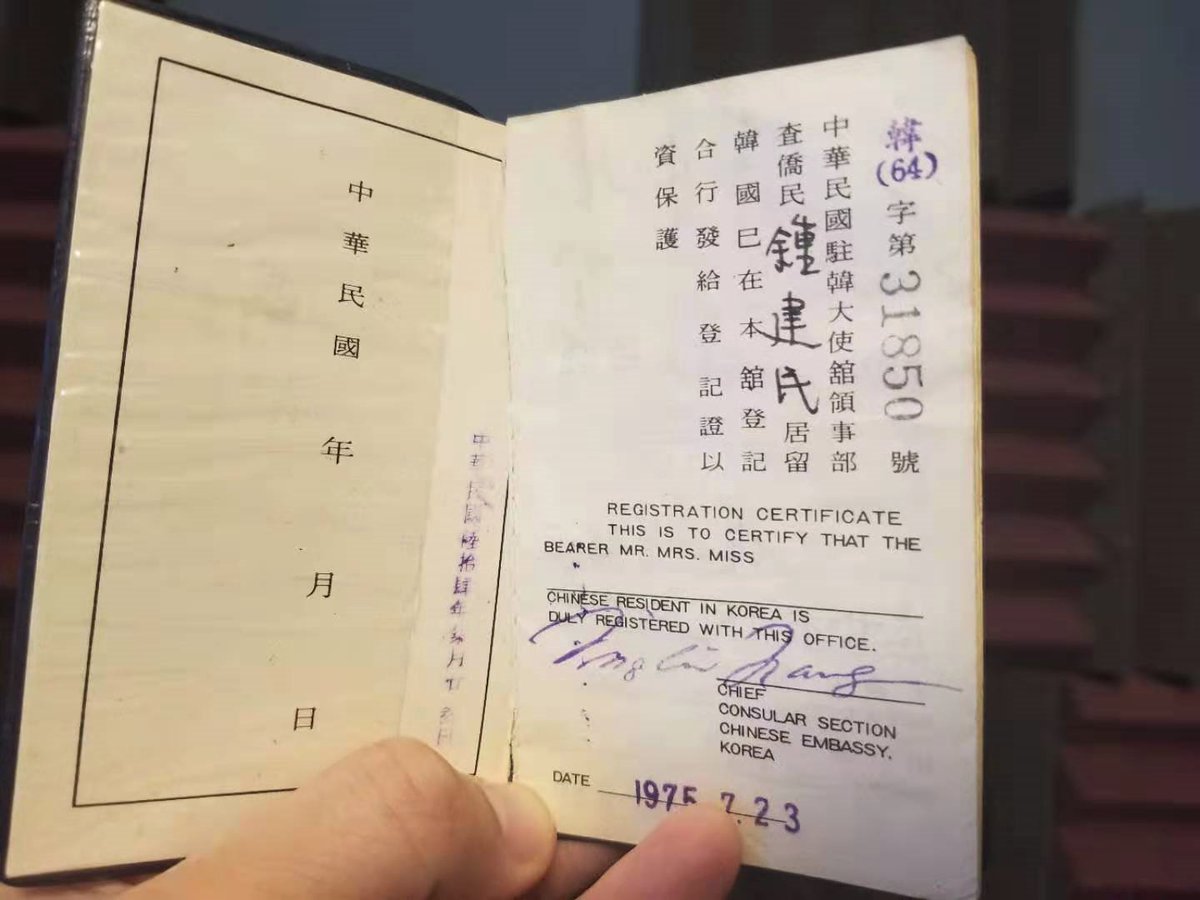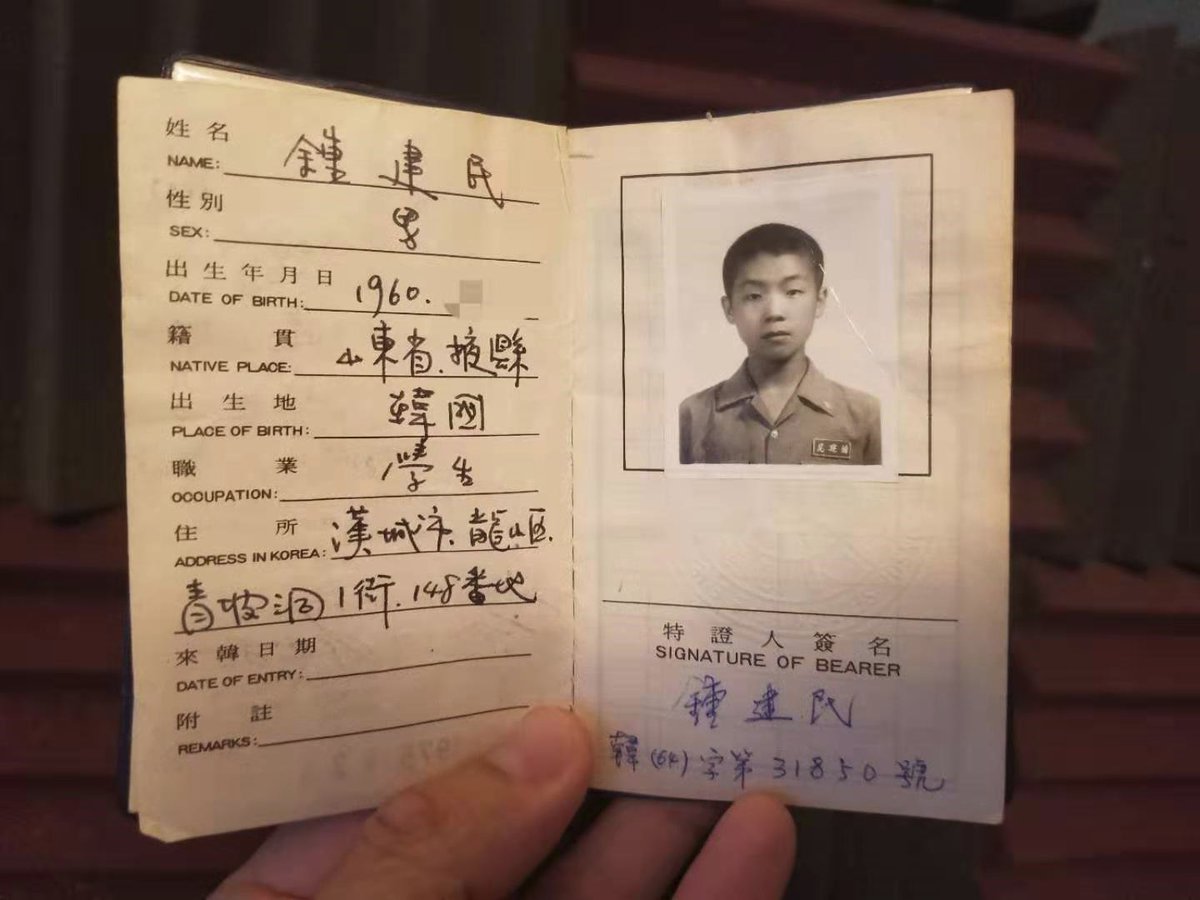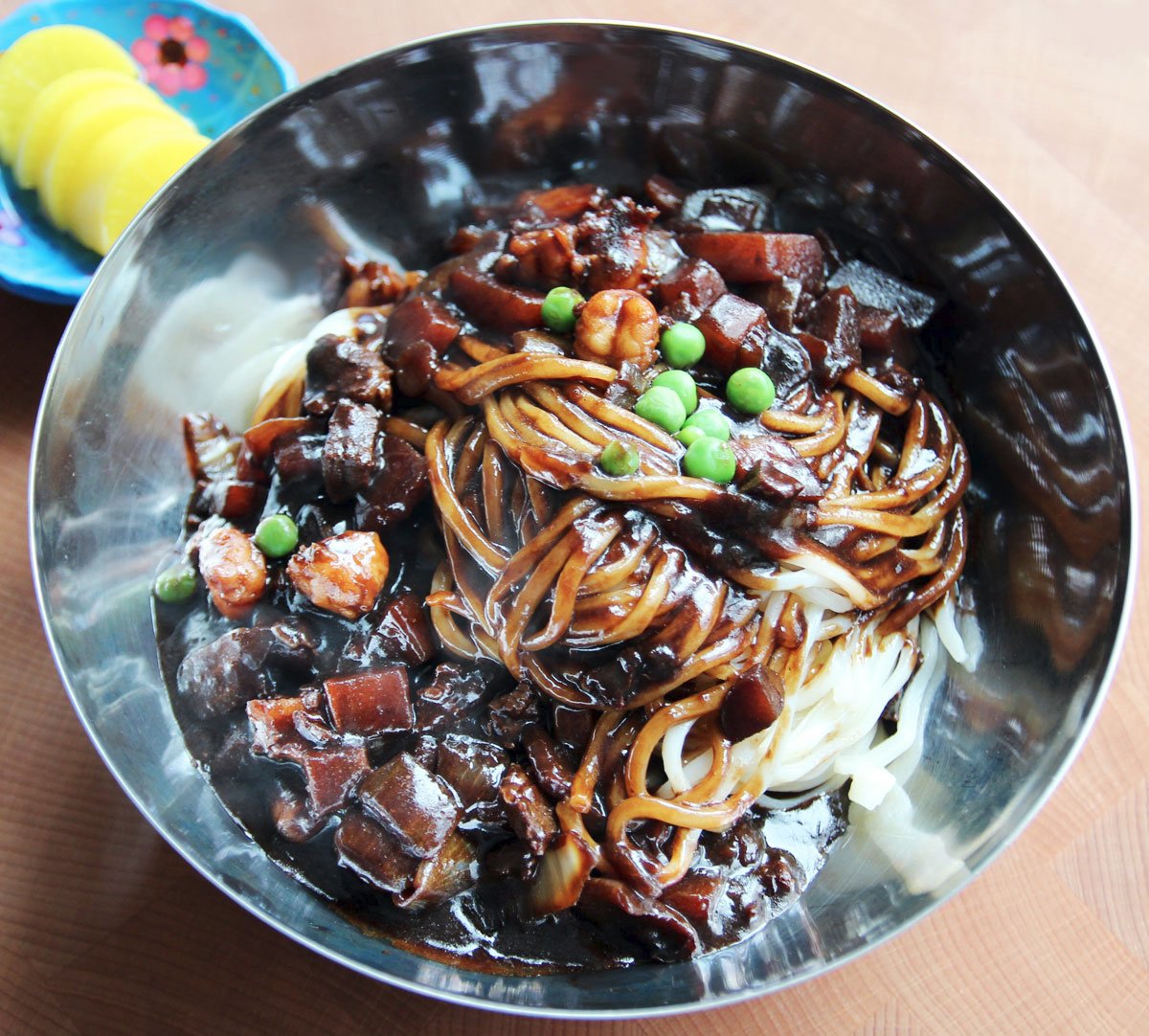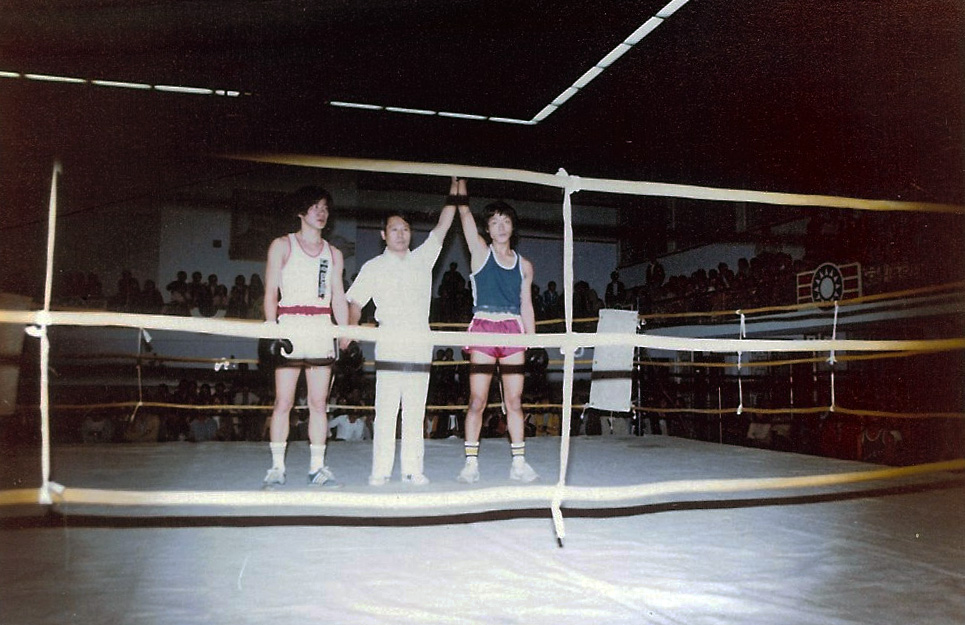1. When my dad was growing up, the south Korean puppet regime did not recognize children born in Korea to Chinese fathers as Korean citizens. This was the ID that was issued by the "ROC" embassy (similar to the consular ID cards that some undocumented immigrants in the US have)
2. Back then, the KMT did everything it could to win over overseas Chinese communities, and because Chinese people in south Korea were not given Korean citizens, the "ROC" "adopted" these overseas compatriots. Essentially, these people were like permanent residents in Korea.
3. This made sense since the south Korean puppet regime recognized the "ROC" as the legitimate Chinese government, not to mention, people like my grandfather who arrived to Korea during the 1st half of the 20th century were in fact ROC citizens. (pre-1949 ROC doesn't need quotes)
4. The Chinese diaspora in Korea had schools set up for their children, & those schools taught the curriculum that was designed by the "Ministry of Education" in Taiwan. Back during my dad's days, the curriculum taught in TW was still very China-centric, though anti-communist
5. Korean was practically taught as a foreign language class, but since people like my dad grew up in Korea, they were immersed in it anyways. My dad's generation was typically very fluent in Korean and could pass as Korean if not for the school uniforms they wore.
6. So since these Chinese people in Korea are "ROC" citizens, does that mean they can just move to Taiwan at any time? Kind of. Being an "ROC" national doesn't automatically give you the right to abode in TW. You have to have a household registration for that
7. But it does entitle you to an "ROC" passport, and if you have a friend or relative who's willing to add your name to their household registry, then you'll get the right to abode (and if you're a guy, you'll be obligated to fulfill your military service)
8. Since the KMT tried to appeal to Overseas Chinese, universities in Taiwan had affirmative action programs that encouraged overseas compatriots to study in Taiwan. My dad was one of them. My aunt had an apartment in Taiwan at the time, so my dad became a "full" citizen then
9. Even though my paternal grandfather was from Shandong province and has never been to Taiwan in his life, his children, in a way, became pseudo-Taiwanese due to this political environment.
10. The hwagyo (Korean for 華僑 huaqiao, meaning overseas Chinese) of my dad's generation were VERY patriotic, because they faced a lot of discrimination in Korea and were systematically disenfranchised by the Park Chung-hee regime.
11. One of my aunts couldn't believe it when I told her that north Koreans were super friendly to me, because when she grew up in Korea, she had to hide the fact that she was Chinese if she wanted to be treated well.
12. So, what about the children of the hwagyo who didn't leave Korea? They're allowed to become Korean citizens now, but many choose not to as an acknowledgement of their heritage, and, in the case of guys, to avoid conscription.
13. However, times are a bit different now. Whereas the hwagyo of my dad's generation spoke Chinese to one another, my cousins (one of my uncles stayed in Korea) speak mostly Korean, and have a Korean accent when speaking Chinese. They're essentially Korean, but legally Chinese.
14. Even though the south Korean regime cut diplomatic ties with Taipei and established them with Beijing, the hwagyo who choose not to become Korean citizens are still "ROC" national due to this history, and they can pass it on to their children as long as TW law doesn't change
15. One of the most iconic dishes in south Korea, jjajangmyeon, was pioneered by hwagyo. After Park's anti-Chinese laws passed, my grandpa ran a jjajangmyeon place, and my dad grew up as a delivery boy. JJM is a variation of Chinese zhajiangmian made with Korean ingredients
16. I was surprised in north Korea when I found out that nobody knew what jjanggae (짱깨) meant. It is a slur commonly used in south Korea to refer to Chinese people. My relatives were called that very often. It happened so much that many hwagyo boys got really good at fighting
17. Being called 짱깨 all the time in Korea paid off, I guess. This is him winning a boxing match in Taiwan. Notice the Chiang Kai-shek portrait in the background (they're not common at all anymore)
18. I could speak more on this topic, but then this thread would go on forever - plus I have a lot more to learn about this history. If I do more research on it one day, I might try and see if I could hop on a podcast to share.
19. An example of the patriotism of the older hwagyo. This song, called "Ode to the Republic of China," was popular in the 1970s. It was written by Liu Jiachang (劉家昌), who was part of the Chinese diaspora in Korea before moving to Taiwan.

 Read on Twitter
Read on Twitter






